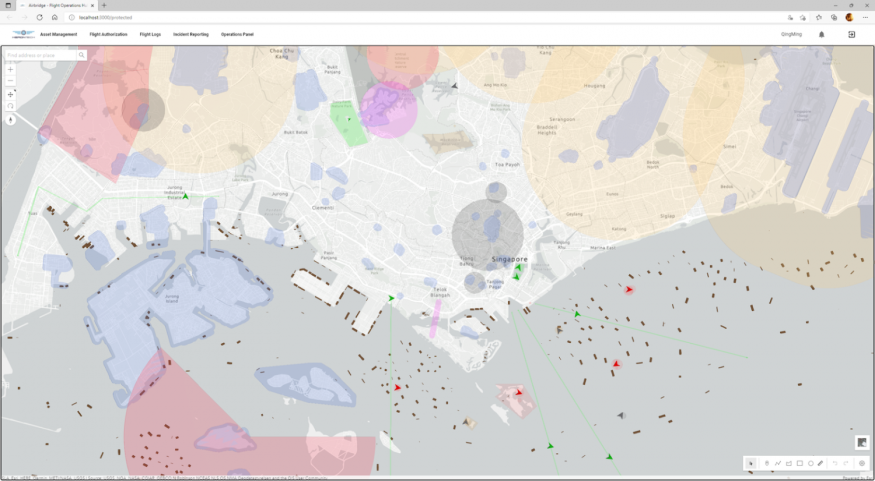
In airspace, similar to ground level road infrastructure, some areas are traffic hot spots and harder to navigate. The U.K. airspace, for instance, is considered especially challenging. It has five major airports within a small geographic radius and handles a quarter of Europe's traffic despite possessing just 11% of its airspace.
Another complex airspace is Singapore. It has a densely populated urban environment, a lot of prohibited and highly restricted airspace, and the Singapore Changi Airport is also the busiest airport in Asia, according to consultancy firm Sobie Aviation. In February 2023 alone, there were four million passengers and 22,900 commercial aircraft moving in and out of Changi Airport.
In the meantime, the city plans to increasingly use unmanned aerial systems (UAS), commonly known as drones, for all kinds of tasks, from parcel delivery and surveillance to building inspection. And the application of UAS is ever expanding. During the last New Year's countdown at Marina Bay, drones were deployed by the police force for crowd control. Furnished with thermal and visual sensors, they help the police to keep tab on the size, flow and density of the crowd. Some are even equipped with speakers to broadcast safety measures.
With the increased use of unmanned vehicles in recent years, the airspace now has to include these new vehicles in addition to traditional aircraft.
The rising air traffic congestion and complexity require innovative technological solutions to manage the airspace safely. This is where Unmanned Aircraft System Traffic Management (UTM) technology comes in - it helps integrate UAS into the existing air traffic management system by providing real-time situational awareness, communication and coordination between UAS operators and air traffic controllers. Moreover, UTM technology enhances safety by providing UAS operators with up-to-date information on air traffic movement and weather conditions.
Heron AirBridge is one of the leading pioneers in UTM technology in the Asia-Pacific region. The company's flagship product, AirBridge, is a one-stop, end-to-end drone management solution for drone operators and other stakeholders. It provides a centralized system for managing multiple drones simultaneously and helps to overcome the challenges of operating drones in complex environments. The system includes advanced features such as real-time monitoring of the airspace, identifying and tracking of UAS operations, route optimization, automated authorization, coordination with other UAS and human-crewed aircraft, customizable operational awareness and support for various drone operation complexities. It enhances situational awareness, reduces the risk of collisions and enables seamless integration of UAS into the existing aviation ecosystem.
Just recently, Heron AirBridge joined Inmarsat's Velaris Partner Network to spearhead the safe integration of uncrewed aircraft into Singapore's commercial airspace. The partnership is a massive milestone for Heron AirBridge; it will give the company access to Velaris's network of industry experts as well as Inmarsat's topnotch satellite connectivity solutions - and it's the first time the Velaris technology will be used in Asia Pacific.
It is not surprising that among the many options available, Heron AirBridge has been selected to join the notable network. In addition to its solid track record in UTM technology, the firm can also leverage the cyber security expertise of its sister company Heron Technology to support secure drone operations.
What's more, given the complexity of its airspace, Singapore is actually a great test market to explore and develop innovative UTM technologies and frameworks for complicated urban airspaces. When the trials appear successful, the efforts will serve as a blueprint and can be replicated in other markets worldwide.
In other words, the new Inmarsat alliance enables Heron AirBridge to expedite the blueprint for a consolidated airspace of the future and lead UAS integration globally.
© 2025 ScienceTimes.com All rights reserved. Do not reproduce without permission. The window to the world of Science Times.












